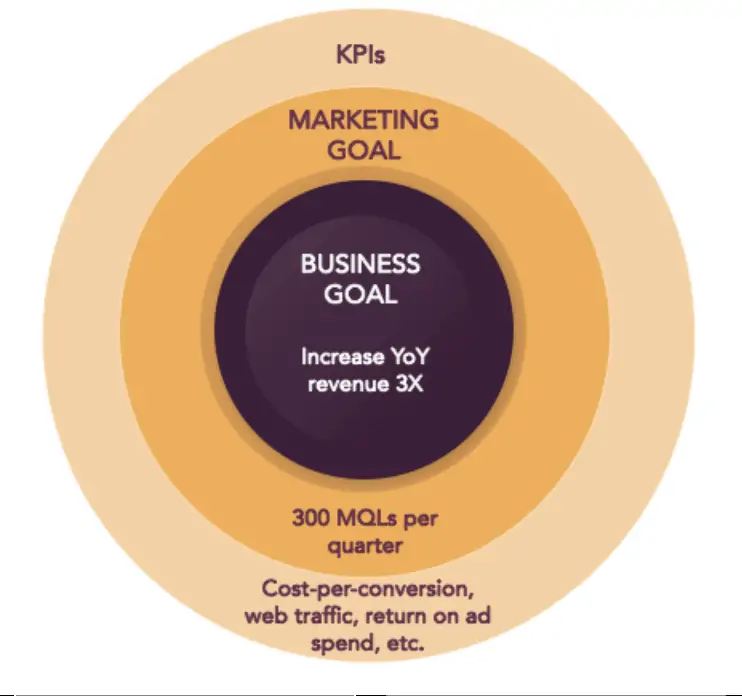If the marketing agency you’ve hired is struggling to prove ROI, keep you satisfied, or prove that their marketing efforts are working, their measurement and reporting could be the culprit.
Whether your agency is tracking results but not communicating them clearly to you or you need to refocus their measurement plan, follow these three tips to get the most out of your agency relationship.
1. Define specific, measurable goals
Goals should be part of the conversation from the first call you have with a potential agency partner. If they aren’t asking you about your goals and past performance, how can they decide which marketing services you truly need?
As your project kicks off, be sure your agency remains focused on your goals and defines the metrics they’ll use to measure them. Every marketing goal should have a set of associated KPIs, all of which will play a role in supporting the overall business goal. Be very granular here and ensure everyone is in agreement.

Even for goals that are more difficult to directly measure, like brand awareness, come up with a tangible KPI you can track (e.g., RFP invitation rate, branded searches, ad views).
2. Identify which results matter and which don’t
Once campaigns begin, you’re flooded with marketing data. However, more data does not always paint a clearer picture.
If your agency is sending a 50-page auto-populated report with CTRs and like counts for every social media post or basic web traffic charts you could find for yourself in Google Analytics, speak up to stop the “fluff” reporting.
What you’re craving are valuable insights. Sure, overviews of website traffic, CTRs, and other pertinent metrics to gauge campaign performance are relevant but you want to know the data that impacts your bottom line: marketing leads, revenue attributed to marketing, and ROI on marketing spend.
Which leads us to our next point on reporting.
3. Demand a report structure that adds value
Once you’re in agreement on the metrics that matter, it’s your agency’s job to report them clearly and succinctly. Every report should give an update on the business goals, marketing goals, and KPIs to date.
The report is also your agency’s chance to demonstrate their added value. Does your agency add insights to help you make sense of the data, prove what’s working well, and show how they will pivot to continue improving campaign performance?
Report format is critical to helping you tell the right story to your internal stakeholders as well. If you’re a VP of marketing, you might appreciate a detailed monthly presentation with in-depth campaign metrics. But you’ll also want a one-page analytics dashboard to share with C-level executives who just want to see the highlights.
Don’t be afraid to ask for a reporting structure and cadence that works for you.
How do you identify a results-driven agency?
Results speak for themselves, especially when they are universally understood. Your potential agency partner should feature results similar to those you’re aiming to achieve on their website, in their pitch, and in their proposal.
Numbers don’t lie, so look to them as the source of truth: 5X revenue increase, record pipeline growth, 1,300 surgeon leads.
This shift in perspective will help you transition from transactional agency relationships to find an indispensable strategic partner.
For 20 years, we’ve helped healthcare and tech businesses write unparalleled growth stories and build lasting legacies.
Embrace marketing and give new life to your dreams. Together, let’s reimagine the future.


